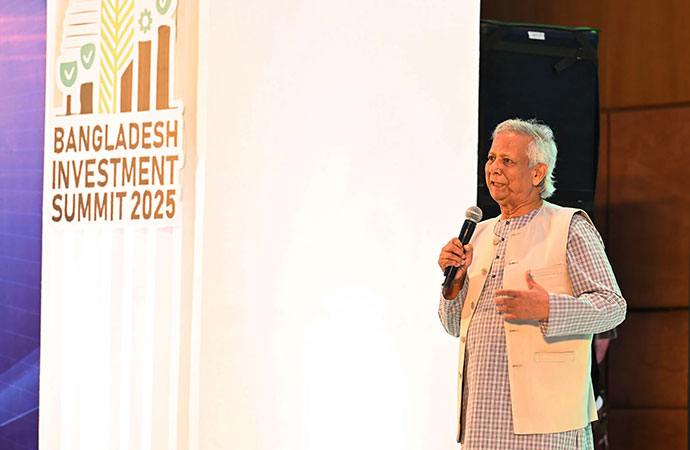Featured 1

We are disturbed by developments in relations with our most significant neighbour once again, quite out of the blue one may add, as New Delhi terminated the transhipment facility that allowed export cargo from Bangladesh to third countries to use Indian land customs stations en route to ports and airports. The facility had been enabled for some component of Bangladesh's exports to countries like Bhutan, Nepal. The Indian government later issued a clarification that the termination order would not affect Bangladesh's trade with Bhutan and Nepal. Which made you wonder what the whole point of it was then, because the rest is really quite negligible.
India's External Affairs Ministry spokesperson later said the facility has been withdrawn due to "delays and higher costs" hindering India's own exports and creating backlogs. Bangladeshi exporters have naturally expressed concerns over India's decision, seeing their costs will go up (at least those who export to countries other than Bhutan, Nepal using the facility). The commerce adviser to the interim government was stoic in his assessment. Forced to respond in the midst of BIDA's showpiece Investment Summit, Sheikh Bashiruddin said they foresaw no problems.
The facility had previously allowed just 40,000-50,000 tonnes of goods to be taken to numerous ports in India by road, the commerce adviser explained. These goods were often bound for different countries in Europe.
Yet the impression will remain, that coming less than a week after the meeting between Chief Adviser Muhammad Yunus and his counterpart Narendra Modi on the sidelines of the BIMSTEC Summit in Bangkok last week, it represents yet another lost opportunity to build trust and confidence.
Mr Modi's great friend in the White House in Washington meanwhile, was wreaking far greater havoc on the global stage. After some 75 countries, including Bangladesh, contacted the Trump administration to negotiate the inexplicable 'reciprocal tariffs' announced last week, the US president did relent, now announcing a 90-day pause on the announcement, and narrowing the scope of his trade war to set his sights on China, who have retaliated strongly. The world's two biggest economies are on a dizzying escalation ladder, but as we went to press this week, China had raised tariffs on US goods to 84%, after Trump, while announcing the pause with other countries, hiked it to 104% on Chinese goods. That has prompted Mr Trump to now announce an eye-watering 145% tariff against China.
Markets in all continents endured the volatility, just about. The biggest fall since Covid was followed by the largest gain in years. How much more the prevailing system underpinning the world economy can endure, is anybody's guess.

























Leave a Comment
Recent Posts
Auspicious beginnings, but a l ...
The newly elected government of Bangladesh is now in office, and the e ...
Caught between tigers and pira ...
Over 10,000 fishermen in the Sundarbans have suspended their fishing a ...
Historic Chawk Bazar comes alive with iftar items on ..
Shaping Young Conservationists: School Conservation ..
Iran has said it has reached an understanding with t ..
New Finance Minister Amir Khosru Mahmud Chowdhury